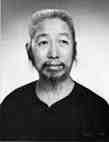
Cheng Man-ch'ing is often viewed as a "traditionalist," yet he was also an creative innovator. In the field of taijiquan (t'ai chi ch'uan), Cheng's contributions were numerous and influential, with international impact. With a career that spanned over four decades, Cheng:
• created a Yang-style short form; this received the imprimatur of his elder classmate Chen Weiming, one of Yang Chengfu's leading disciples
• helped increase taijiquan's popularity and helped spread it to Malaysia, Singapore, Taiwan, and the United States
• promoted taijiquan as a highly suitable exercise for women
• taught taijiquan as a "dao"—a method of self-cultivation in harmony with Confucian and Daoist teachings
• taught publicly without regard to students' nationality, gender, or ethnicity
• created numerous curriculum innovations and adaptations
• wrote the influential Thirteen Treatises on T'ai Chi Ch'uan that focuses on in-depth theory and philosophy
• wrote some of the first English books on taijiquan
• drew on his in-depth knowledge of the Chinese Classics and Traditional Chinese medicine for his teaching and writing
• gave countless demonstrations
• regarded taijiquan practice as a method of saving the health of the Chinese people, as well as the world
That Cheng Man-ch'ing was able to contribute in such breadth and depth to the field of taijiquan would seem sufficient for one person's accomplishments. However, he was just as prolific in his other fields, writing numerous books and articles, giving interviews, lectures, and exhibits of calligraphy, painting, poetry, and exploring the rich writings of Chinese philosophers such as Confucius, Laozi, Mencius, Wang Yangmng, and others, as well as in his last work, a commentary on the Yijing—the Book of Changes.
Friday, November 2, 2007
Cheng Man-ch'ing's T'ai Chi Contributions
at
8:17 AM
![]()
Labels: t'ai chi ch'uan, tai chi, taijiquan
Subscribe to:
Posts (Atom)
